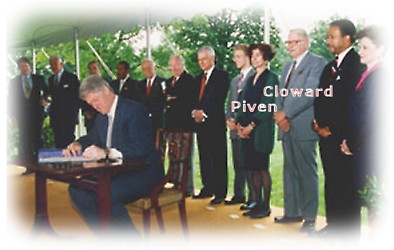Big changes are on the way and it means your privacy will be further eroded and ever dependent on the whim of a government worker.

By Janice Dysinger
*This post has been edited to clarify parts which speculate about the fall out of this bill and to include additional supporting documents and links.
Oregon Voter Registration process is about to change in a big way. No longer will you be required to register. This will be done automatically by the Secretary of State from your DMV records. There are some caveats. Some are asking: Who will be registered to vote? What will happen to my privacy? What if I don’t want to be registered? What’s the cost?
Automatic Voter Registration HB2177 passed House on Feb 20th! It still must pass the Senate and be signed by the new Governor, who is the former Secretary of State until last week. You won’t be able to opt-out at DMV, instead your data will be sent to the Elections Division. They will notify you that you must opt out in the following 3 weeks or you WILL be added to the voter registration rolls. Your private DMV record information including your signature will become part of the public voter registration record. That is a problem for some people, who do not want to be registered, or have their information on a public database.
In 2014, Rep. Sal Esquivel R-Medford asked new Oregon Director of Elections Jim Williams about the current process of verifying voter ID from the DMV database. William’s letter in response to Esquivel outlines current practices, but what is troubling to election integrity activists is that though the DMV does send data to Elections Division, the agency only gets the basics: name, address and other demographic data. Under the current system, there is no confirmation of citizenship required. Noncitizens can slip through the cracks and be registered to vote.
Williams Letter to Rep Esquivel by Janice Dysinger
Oregon’s DMV database still includes names that predate 2008 rules-change, which required proof of citizenship before getting a driver’s license. In the early 2000s 80,000 noncitizens registered to vote and got driver’s licenses (in Washington County). They will not cycle out of the DMV system until 2017.
Under President Obama’s Deferred Action on Childhood Arrivals (DACA), noncitizens, including those living in the state of Oregon, can get a driver’s license .
Anyone with a driver’s license can currently register to vote online if they are willing to lie and say they are a US citizen. It’s a felony to do so, but the system will accept the person. They will get a ballot. It will count.
[Recently, Secretaries of State testified before Congress that the President’s ‘executive amnesty’ will make the identification virtually indistinguishable from that of citizens. Non citizens, they argued, under these new rules could vote.
The Washington Times reports Jon Husted, the Ohio Secretary of State, and Kris Kobach, the Kansas Secretary of State testified illegal aliens will flood the zone, making it impossible to check everyone’s citizenship,
Anyone registering to vote attests that he or she is a citizen, but Ohio Secretary of State Jon Husted said mass registration drives often aren’t able to give due attention to that part, and so illegal immigrants will still get through.
Kansas Secretary of State Kris W. Kobach said even some motor vehicle bureau workers automatically ask customers if they want to register to vote, which some noncitizens in the past have cited as their reason for breaking the law to register.
“It’s a guarantee it will happen,” Mr. Kobach said.]
A recent article from Breitbart News Network shows how noncitizens are using false IDs to get driver’s licenses in California. California officials were trying to help noncitizens get drivers licenses; instead they were exposing ID theft. It is such a problem that elected officials decided not to criminalize noncitizens for committing ID theft if they only did it to get a driver’s license.
An ongoing nationwide study, the Cooperative Congressional Election Study, revealed that in the election years of 2008 and 2010, enough noncitizens voted to change election outcomes. The authors of that study wrote the Washington Post October 14th, article that details how noncitizens slip through cracks in our electoral system.
Back in Oregon, HB2177’s big change in law leaves it to bureaucratic rule making — without legislative confirmation — to decide how to implement this sea change in law:
“The Secretary of State shall by rule establish a schedule by which the Department of Transportation shall provide to the secretary electronic records containing the legal name, age, residence and citizenship information for, and the electronic signature of, each person who meets qualifications identified by the secretary by rule.”
Under this bill proposed at the request of the Secretary of State, it is entirely up to the Secretary of State to make the qualifying rules. The rules are not stated in the bill. This shift of power from the Legislative branch to the Executive branch is quite astounding. Secretaries change over time, from elections or as we see currently in Oregon, due to other reasons. While Secretary Brown’s staff testified in committee that only proven citizens would be auto registered, there are no assurances from future Secretaries of their same commitment. Instead though this bill, it is the Secretary’s prerogative to decide by administrative ‘rule’. The administrative rule process is easy to change and is not subject to the legislative approval.
Rep. Carl Wilson R-Grants Pass in the House Rules Committee argued that small counties are already strapped for money to provide basic services and safety for citizens, and opposed HB2177 on the grounds that mandating these changes would be a big problem financially for his county.
Ways and Means Committee members have committed to covering the financial costs of implementation, but Wilson isn’t convinced: “I’ve heard this promise before,” he said.
Estimated price tag for initial statewide implementation: $1.5 million.
Republican legislators asked why $1.5 million is being spent to implement an opt-out system in a state that already boasts one of the highest voting participation rates in the country. They referenced two security breaches in 2014 at the Secretary of State’s office, and voiced concerns about jeopardizing the privacy of citizens.
When the bill was routed through the Joint Ways and Means Committee and onto the Joint Subcommittee on General Government, the discussion got heated. The bill had not traveled the usual route through the Senate Rules to discuss the policy change. Senator Doug Whitsett R-Klamath Falls told Co-Chair of General Government: Senator Elizabeth Steiner-Hayward, D-Portland that she would have to call security to remove him when she attempted to limit his questions about HB2177 to strictly fiscal issues.
Janice Dysinger is an Oregonian, patriot and a student of Oregon’s election law. This article first appeared on the Americans for Prosperity, Clackamas website. It has been reprinted by permission.




